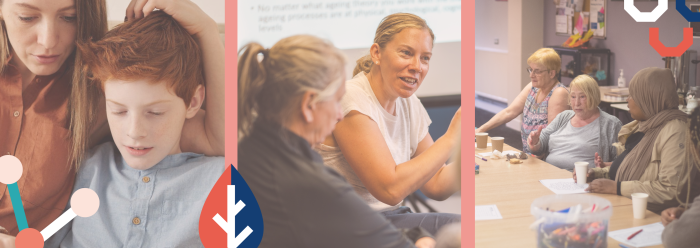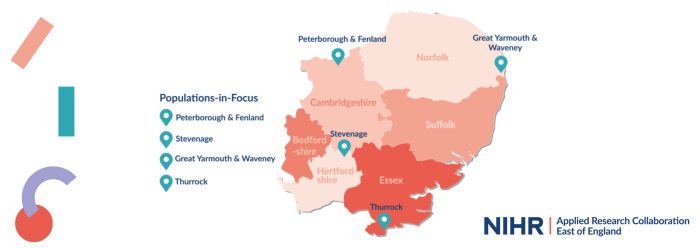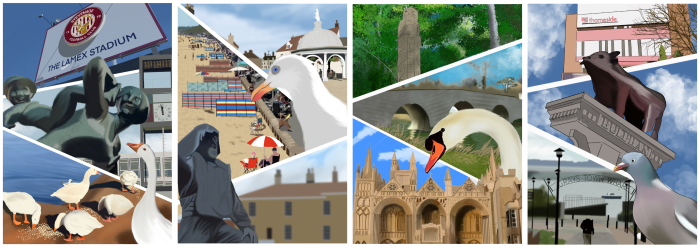Working collaboratively and engaging with communities is at the heart of ARC EoE

We engage and involve under-represented communities in health and social care research and develop community-led approaches to solve problems. We identified four areas in the region as 'populations-in-focus', to build relationships and develop community-driven research addressing local health and social care need. These areas are diverse places, across the large geographical footprint of the Eastern region, with a diversity of health and care needs. They include dispersed rural areas of Fenland; diverse city of Peterborough; post-war ‘new-town’ of Stevenage; and coastal communities with ageing populations in Great Yarmouth.

This work has supported the creation of the Stevenage Dementia Involvement Group, building health and wellbeing research links with children and families in Stevenage. We have worked with carers, health and social care professionals, local and national voluntary organisations in Great Yarmouth and Waveney to develop and trial a new Carer Support Nurse role and evaluated a method to support communities in Great Yarmouth and Waveney to make use of their own skills and resources to support and improve the experiences of people experiencing life-limiting illness, loss or grief.
I am so pleased to be given the opportunity to be involved with the group and know that my thoughts and feelings are being listened to and hopeful that this may lead to positive change
Stevenage Dementia Involvement Group Member
Our researchers have spent time talking and listening to those living and working in Thurrock to understand local health and social care priorities, this has led to working closely with Gypsy, Roma and Traveller communities. And in Peterborough, we have evaluated a culturally adapted intervention for use in faith institutions to see if this could improve uptake of bowel cancer screening in the Muslim community.
In May 2023, we undertook a review of this approach, to understand if it has helped to develop meaningful engagement and strong links with these areas. You can read the full report from this research and examples of projects in these areas and the difference they have made here:
ARC EoE Community Involvement and Engagement: Downloads
Walk with us
In the summer of 2022 and 2023, our research team at the University of Hertfordshire arranged walks in the communities that we work with. They came up with the idea because we wanted to do some engagement in person and provide events that would be fun and didn’t necessarily have a fixed agenda. It is a great opportunity to meet people in our communities for a walk and talk outdoors, appreciating the local scenery, country parks and occasional café! The walks have been a great way to connect and spend time together in person. You can read more about the walks here.

Inspired by Walks in Stevenage, Grays, Thurrock and Waveney. Image Credit: Terry Hall